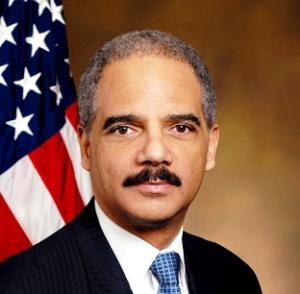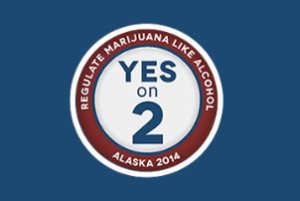It's much easier to do bad things to -- or fail to do good things for -- people we have stigmatized as somehow lesser than the rest of us. The Denver-based Harm Reduction Action Center is taking on the stigmatization of drug users. That's a good thing.
It's now less than two weeks to Election Day, things are looking pretty good for those statewide marijuana legalization and medical marijuana initiatives, but they could still use your help. Find out what you can do.
There's a national "vote medical marijuana" campaign, Colorado won't ban edibles, the Florida initiative appears to be in trouble, Massachusetts patients can start registering, and more.
A deputy US marshal goes gangster, more prison and jail guards get in trouble, and another pain pill-peddling police officer goes to prison. Just another week in the drug war.
Polls have the Oregon initiative up, but the Florida initiative down; a marijuana march in New Jersey takes place on Saturday, Obama nominates a drug reformer to a key Justice Dept. position, a Dutch court sticks a thumb in the government's eye, and more.
Oregon moms take stands on Measure 91, a new Delaware poll has healthy support for legalization, say goodbye to most of San Jose's dispensaries, there's an asset forfeiture reform bill in Virginia, and more.
New pot polls in New Hampshire and North Dakota, Philly decrim goes into effect, NYC marijuana arrests continue, Nevada senator wants heroin clinics, Massachusetts chief justice slams mandatory minimums, Facebook sends a stern letter to DEA, mayhem continues in Mexico, and more.
Holder talks pot, more big bucks flow to Oregon initiative, federal judge to ponder whether marijuana belongs in Schedule I, the right attacks Vanita Gupta, Canada's NDP calls for decriminalization, and more.
Texas will see marijuana reform legislation next year, "Brownie Mary" Democratic Clubs come to California's East Bay, Utah will consider drug defelonization, Afghan poppy fiasco, and more.
In many ways, ours is harsh, moralistic, and punitive society. One need only look at our world-leading incarceration rate to see the evidence. We like to punish wrongdoers, and our conception of wrongdoers often includes those who are doing no direct wrong to others, but who are doing things of which we don't approve.
We label those people of whom we don't approve. When it comes to drugs and drug use, the labels are all too familiar: Heroin users are "fucking junkies;" alcohol abusers are "worthless drunks;" cocaine smokers are "crack heads;" stimulant users are "tweakers;" people with prescription drug habits are "pill poppers." The disdain and the labeling even extends to the use of drugs on the cusp of mainstream acceptance. Marijuana users are "stoners" or "pot heads" or "couch potatoes."Such labeling -- or stigmatizing -- defines those people as different, not like us, capital-O Other. It dehumanizes the targeted population. And that makes it more socially and politically feasible to define them as threats to the rest of us and take harsh actions against them. It's a pattern that we've seen repeatedly in the drug panics that sweep the nation on a regular basis. Drug users are likened to disease vectors or dangerous vermin that must be repressed, eradicated, wiped out to protect the rest of us.
(It is interesting in this regard to ponder the response to the most recent wave of opiate addiction, where, for the first time, users are being seen as "our sons and daughters," not debauched decadents or scary people of color who live in inner cities. Yes, the impulse to punish still exists, but it is now attenuated, if not superseded, by calls for access to treatment.)
Never mind that such attitudes can be counterproductive. Criminalizing and punishing injection drug use has not, for example, slowed the spread of blood-borne infectious diseases such as HIV and hepatitis C. To the contrary, it has only contributed to the spread of those diseases. Likewise, criminalizing drug possession does not prevent drug overdoses, but it may well prevent an overdose victim's friends or acquaintances from seeking life-saving medical attention for him.
A recent survey from the National Council on Alcoholism and Drug Dependence reinforces the view that we tend to stigmatize drug users as morally decrepit. That survey found that Americans are significantly more likely to have negative attitudes about drug addiction and addicts than about mental illness.
Only one out of five said they would be willing to work closely on the job with a person addicted to drugs (as compared to 62% for mental illness), and nearly two-thirds said employers should be able to deny a job to someone with an addiction issue (as compared to 25% for mental illness). And 43% said drug addicts should be denied health insurance benefits available to the public at large.
"While drug addiction and mental illness are both chronic, treatable health conditions, the American public is more likely to think of addiction as a moral failing than a medical condition," said study leader Colleen L. Barry, Ph.D. of the Johns Hopkins Bloomberg School of Public Health. "In recent years, it has become more socially acceptable to talk publicly about one's struggles with mental illness. But with addiction, the feeling is that the addict is a bad or weak person, especially because much drug use is illegal."
"The more shame associated with drug addiction, the less likely we as a community will be in a position to change attitudes and get people the help they need," study coauthor Beth McGinty, Ph.D. said in a news release. "If you can educate the public that these are treatable conditions, we will see higher levels of support for policy changes that benefit people with mental illness and drug addiction."
As the survey suggests, the process of stigmatization is an impediment to smart, evidence-based approaches to dealing with problematic drug use. Now, the Denver-based Harm Reduction Action Center is trying to do something about it.
In the last few days, it has rolled out a new anti-stigmatization campaign featuring the faces of injection drug users, the locations where they overdosed or suffered other bad consequences, and their individual stories in brief.
"My name is Alan," says a middle-aged man with a brushy mustache. "I overdosed on heroin. Right there in that parking lot in that picture. I know the risks of doing heroin, but drug dependency is strong."
The second part of Alan's message is repeated with each drug user pictured: "There are 11,500 injection drug users like me in Metro Denver. 73% of us carry Hepatitis C. 14% of us have HIV. The transmission of bloodborne diseases and drug overdoses are nearly 100% preventable. Support the Harm Reduction Action Center. Learn more about how our public health strategies keep you, and the people you know, safe."
"My name is Andrew," says a dreadlocked and pierced young man whose image is coupled with a photo of an empty apartment. "After a decade living as a homeless youth, the most traumatic thing that happened to me didn't happen to me at all. It happened to my best friend Val. She died of a heroin overdose. Right here in this picture. She was my friend. She was someone's daughter. Sobriety has taught me a lot about the thin line that separates us all. Val was someone you knew. She probably served you coffee. She probably even greeted you with a friendly smile."
"My name is Joanna," says a woman whose image is paired with a photo of a car parked beneath a highway overpass. "When I was diagnosed with lymphoma, I was prescribed a heavy dose of pain killers. Cancer hurts, but with treatment, it went away. My dependency on opioids did not. Two years later, this is where I live; in a car, under the interstate. I did not choose to get cancer. I did not choose to get dependent on opioids."
The images and the messages are strong and direct. That's the idea, explained HRAC executive director Lisa Raville.
"This campaign is about bringing awareness of our work in the community, focusing on the common sense approach championed by harm reduction," she said. "Stigma, of course, is one of the biggest stumbling blocks, preventing otherwise reasonable conversation on the matter of communicable diseases and accidental overdoses. This campaign sets the scene that harm reduction is a valid and evidence-based approach to public health. Access to clean syringes, proper syringe disposal, and naloxone are key components to a comprehensive public health strategy that curbs the spread of HIV, HVC, and reduces the rate of otherwise fatal overdoses."
It's a message directed at the general public even more than drug users themselves, Raville said.
"One of the fundamental problems faced by health care advocates working with injection drug users is a generalized, public perception that the issue is isolated to people and places outside of the normal social sphere. Generally speaking, our tendency is to dissociate our ordinary experiences -- the people we know and the places we go -- from things that we consider dangerous, dark, or forbidden," she said.
"In the arena of injection drug use, the consequence of this mode of thinking has been historically devastating," she continued. "Instead of crafting public policy that works to minimize the harm caused by addiction, our trajectory tends towards amplifying consequences for anyone that wanders outside of the wire and into these foreign spaces. Rather than treating addiction as a disease, we treat it as something that is volitional and deserving of its consequences. Accordingly, our policies view the contraction of blood-borne pathogens and the risk of overdose as deterrents to the act of injecting drugs."
That cold-blooded attitude may make some people feel better about themselves and their policy prescriptions, but it hasn't proven useful in reducing deaths, disease, or other harms resulting from injection drug use. Instead, it tends to increase them.
"These 'consequences,' of course, have little impact on rates of addiction," Raville argued. "They do, however, all but ensure the continued spread of HIV and hepatitis C. Moreover, possession and distribution of naloxone, a drug that counters the effects of otherwise fatal opiate overdoses, remains criminal in many areas throughout the world."
At bottom, the campaign is not just about drug users but about better public health.
"As our campaign points out, when we drive things underground, we make them truly dangerous," Raville said. "Harm reduction is predicated on the fact that people use drugs. Those who inject drugs are among the most insular and at-risk for contracting HIV, HCV or dying of an overdose. Like a stone that falls in the water, these acute health-related events have ripples which touch all of us, regardless of whether or not we use drugs. HIV infects those who inject the same as those who do not; the best way to prevent its spread is to prevent its spread across all populations of people, not just those deemed more socially 'worthy.' By facing stigma head-on and by humanizing the people in our community who we serve, the Harm Reduction Action Center hopes to normalize the issue and bring the conversation about drug use and healthcare to a more practical level. As a public health agency that serves people who inject, we could get so much more done in our community without stigma."
back to top
It's now less than two weeks until Election Day, and statewide marijuana initiatives are on the ballot in four states. All have a shot at winning, and as the clock ticks down, all of them are seeking last minute help to get them over the top.
The Chronicle talked this week to people in the various campaigns, and all of them have concrete ideas on what people can do to help -- whether in-state or not -- in the final days. But before we get to what can be done, let's first review the initiatives, three that would legalize marijuana and one that would legalize medical marijuana:
Alaska Measure 2
The Measure 2 initiative allows adults 21 and over to possess up to an ounce and up to six plants (three flowering). It also allows individual growers to possess the fruits of their harvest even in excess of one ounce, provided the marijuana stays on the premises where it was grown. The initiative also legalizes paraphernalia.
The initiative grants regulatory oversight to the state Alcoholic Beverage Control Board, but gives the legislature the authority to create a new entity, the Marijuana Control Board. In either case, the regulatory authority will have nine months to create regulations, with applications for marijuana businesses to open one year after the initiative becomes effective.
A $50 an ounce excise tax on sales or transfers from growers to retailers or processors would be imposed.
The initiative does not alter either existing DUI laws or the ability of employers to penalize employees for testing positive for marijuana.
The initiative would not interfere with existing medical marijuana laws.
DC Measure 71The Measure 71 initiative would allow adults 21 and over to possess up to two ounces of marijuana and six plants, three of which can be mature. Households could grow up to 12 plants, six of which can be mature. Growers can possess the fruits of their harvests. Plants could only be grown indoors.
Adults could transfer up to an ounce to other adults without remuneration. There are no provisions for taxing and regulating marijuana sales because District law forbids initiatives from taking up tax and revenue matters. A bill is pending before the DC city council that would do precisely that.
The initiative also legalizes the sale and possession of paraphernalia used for marijuana consumption. It does not change existing DUI law, nor does it "make unlawful" any conduct covered by the District's medical marijuana law.
Oregon Measure 91
The Measure 91 initiative allows adults 21 and over to possess up to eight ounces and four plants per household. Individuals can also possess up to 16 ounces of marijuana products or 72 ounces of liquid marijuana products. And individuals can also transfer up to an ounce of marijuana, 16 ounces of marijuana products, or 72 ounces of liquid marijuana products to other adults for "non-commercial" purposes.
The initiative would designate the Oregon Liquor Control Commission to regulate marijuana commerce. The commission would license, audit, and inspect growers, suppliers, and retailers. The commission could set purchase amount limits, which are not specified in the initiative. The commission would have until January 4, 2016 to begin licensing growers, producers, and retailers.
Marijuana sales from producers to processors or retailers would be taxed at a rate of $35 per ounce, $10 per ounce of leaves, and $5 per immature plant. The commission can recommend to the legislature any changes in the tax structure, which would then have to act to enact them.
The initiative does not alter either existing DUI laws or the ability of employers to penalize employees for testing positive for marijuana.
The initiative would not interfere with existing medical marijuana laws.
Florida Amendment 2
The Amendment 2 medical marijuana initiative makes legal the use of marijuana by a qualifying patient or caregiver. It would also make it legal for doctors to recommend medical marijuana and for "marijuana treatment centers" to distribute it.
Patients qualify by having a "debilitating medical condition" including, but not limited to, cancer, multiple sclerosis, hepatitis C, HIV, and
Crohn's Disease. Doctors could also recommend marijuana for "other conditions for which a physician believes that the medical use of marijuana would likely outweigh the potential health risks for a patient."
The Florida Department of Health would regulate medical marijuana and would issue patient and caregiver ID cards, develop rules and regulations for dispensaries, and define reasonable amounts of marijuana for medical use.
The initiative specifically does not allow use of medical marijuana by non-qualifying patients or the use of motor vehicle by patients under the influence. Nor does it require any accommodation for medical marijuana in schools or on the job or that health insurance companies cover medical marijuana expenses.
Because the initiative is a constitutional amendment, it needs 60% of the votes to pass.
What Can You Do?
Even with less than two weeks left in the campaigns, people can still help. There are slightly different tasks and needs in the different states, but all the campaigns are eager for help.
In Alaska, the Measure 2 campaign is asking for people to go to its Talk It Up Alaska web page, where people can choose from a number of ways to help.
"On that page, there are tabs that let people send messages to friends and family -- basically a pre-written email -- as well as phone banking tool," said Chris Rempert, Alaska political director for the Marijuana Policy Project, which is backing the campaign. "We have a limited phone bank list targeted toward people likely to support us, but less likely to get out and vote. People can go there, sign up, and start calling."
The campaign could also use some cash. Donations can be made online here.
"We've spent so much money on advertising, we're running low on funds for the final push," said Rempert. "We need money for yard signs, campaign literature, and the like."
And volunteers on the ground could help, too.
"Especially in Anchorage, we need help with getting signs up and phone banking," Rempert said. "We'll be doing door-to-door canvassing and volunteers would be welcome."
Don't forget engaging with local media.
"People who are in Alaska should be writing letters to the editor," he said. "The opposition has formed a grass-roots Facebook and letter-writing effort, so anyone who can write a letter will be appreciated."
In the nation's capital, the DC Cannabis Campaign is already in the early voting phase of the election. It is using social media, including a #YesOn71 Twitter hashtag, to get the word out.
It could, though, still use volunteers to go to the precincts and hand out information, as well as for phone banking. And it could use more money. To volunteer, go here; to donate, go here. You can even pay in bit coins, if you have them.
In Oregon, the Vote Yes on 91 campaign is urging people to contact their in-state friends and family members, do phone banking, and more.
"If you know any Oregonians, write them a short personal email about why passing Measure 91 is so important," said campaign spokesman Peter Zuckerman. "Reach out to your friends and family members and tell them to vote yes."
Volunteers can still help, too.
"Whether you're an Oregonian or not, you can volunteer," Zuckerman said. "We're working very hard to get out the vote, and we need help. Go to our web site, where we have mobile GOTV groups. If you can get at least six people to phone together at a house, we will send you materials to do it."
There's still more to come, too, Zuckerman said.
"We will be rolling out other ways to help soon, so stay tuned," he advised. "Voter turnout is going to be really important in this election. This is a tough campaign, and we have to fight for every vote. We know your readers are really committed to this issue. Please do everything you can to encourage your readers to help us out."
In Florida, the United For Care campaign is engaged in an uphill battle to hit that difficult 60% mark. As the election season enters its final days, the campaign is still looking for volunteers and still accepting donations. Florida would be the first state in the South to pass a full-blown medical marijuana initiative, and it could still use your help.
It's not too late to make a difference. Act now.
back to top
There's a national "vote medical marijuana" campaign, Colorado won't ban edibles, the Florida initiative appears to be in trouble, Massachusetts patients can start registering, and more. Let's get to it:
NationalOn Sunday, Americans for Safe Access launched a "Vote Medical Marijuana" campaign. The medical marijuana defense and advocacy group aims to educate voters ahead of next month's elections with a new 30-second online TV advertisement that aired on Sunday cable news programs in Detroit, Philadelphia, South Florida, and Washington state. The campaign also includes an interactive online voters' guide at VoteMedicalMarijuana.org. Check it out at the links.
California
Last Friday,the bell tolled for San Jose dispensaries. There is about to be a dramatic decrease in access to medical marijuana in San Jose. The city had up to 80 dispensaries this summer, but only six have permits, which means that as of last Friday, the rest must shut down. Forty-seven more have filed for permits, but 20 have been denied and 20 more remain under review. The move comes after the city passed a strict new dispensary ordinance earlier this year. An effort to challenge it with an initiative came up short.
On Tuesday, the Costa Mesa city clerk certified an initiative for the ballot. The Act to Restrict and Regulate the Operation of Medical Marijuana Businesses (ARRO) gathered well over the number of signatures necessary to make the ballot in a special election. That could be avoided if the city council approves the ARRO at its November 18 meeting. The initiative would allow up to eight dispensaries in the city.
Colorado
On Monday, the health department backed away from a proposal to ban most edibles. The Department of Public Health and Environment had told state regulators they should ban most edibles, but backed away from that idea after a firestorm of criticism.
Florida
Last Thursday, another poll had the Florida initiative coming up short. A new Tampa Bay Times/Bay News 9/UF Bob Graham Center poll had the Amendment 2 medical marijuana initiative at 48% of the vote with 44% opposed and 7% undecided. Because the initiative is a constitutional amendment, it needs 60% to win. This is just the latest in a series of polls showing the initiative failing to reach that mark. Click on the link for more poll details.
Guam
On Monday,a judge dismissed a lawsuit seeking to block the vote on a medical marijuana initiative. A US district court judge has dismissed a lawsuit challenging next month's vote on a legislative medical marijuana initiative. Attorney Howard Trapp had sued to block the vote last month on the grounds that a "legislative submission" was illegal under Guam law, but the judge dismissed the lawsuit, saying that Trapp didn't have legal standing to bring it.
Massachusetts
Last Friday, the health department announced that patients can now register for state ID cards. Patients need to get them by February 1; after that date, unregistered patients will have no legal protections.
Missouri
On Tuesday, the health department announce it is about to begin taking applications to grow low-THC, high-CBD medical marijuana. People who want to grow high-CBD, low-THC marijuana for medical purposes under a new state law can begin submitting applications to the state Department of Health beginning November 3. The state will license two growers, and the window for applications is 30 days. The growers must operate as nonprofits and must produce marijuana that is less than 0.3% THC.
Oregon
Last Thursday, a circuit court judge ruled local governments can ban dispensaries. In a case brought by the town of Cave Junction, Judge Pat Wolke ruled that nothing in the state's dispensary law or another law enacted last year that let localities impose yearlong dispensary moratoriums bars them from instituting outright bans. State city and county associations had argued strenuously that local governments had that ability.
[For extensive information about the medical marijuana debate, presented in a neutral format, visit MedicalMarijuana.ProCon.org.].
back to top
A deputy US marshal goes gangster, more prison and jail guards get in trouble, and another pain pill-peddling police officer goes to prison. Just another week in the drug war. Let's get to it:
In Yuba City, California,
a deputy US marshal was charged last Wednesday with stealing 24 pounds of marijuana in the guise of a drug raid. Deputy US Marshal Clorenzo Griffin and two other men intended to sell the marijuana, prosecutors said. He went down after a California Highway Patrol officer saw his vehicle run a red light shortly after the robbery and pulled it over. Griffin and the two others are charged with robbery, possessing and distributing marijuana, and brandishing a firearm while committing a crime.
In Terre Haute, Indiana, a former federal prison guard was charged last Wednesday with smuggling drugs into the federal prison there. Edward Tunwar, 54, is accused of providing an inmate with heroin and a cell phone. He is charged with distribution of a controlled substance and two counts of providing contraband in prison.
In Grand Rapids, Michigan, a Kent County jail guard pleaded guilty Monday to charges related to a marijuana butter distribution ring among jail guards. Sgt. Timothy Bernhardt, a 22-year veteran, copped to a single charge of maintaining a drug house. In return he must testify against his fellow officers. Another jail guard accepted an identical plea deal last week. Two other jail guards still face charges.
In Wilkes-Barre, Pennsylvania, a former Hughestown Borough police officer was sentenced last Thursday to 2 ½ years in federal prison for peddling pain pills. Robert Evans Jr. admitted to selling hundreds of the pills while in uniform and on duty. It's not clear what the formal charge was, but he's also looking at three years on probation once he is released.
In Louisville, Kentucky, a former prison guard was sentenced Monday to no jail time in a case where he supplied drugs to female inmates in exchange for sex. James Johnson, 54, had faced numerous charges, but accepted a plea deal to charges of sexual abuse, trafficking a controlled substance, and official misconduct. He got seven years of probation and a diversion program.
back to top
Polls have the Oregon initiative up, but the Florida initiative down; a marijuana march in New Jersey takes place on Saturday, Obama nominates a drug reformer to a key Justice Dept. position, a Dutch court sticks a thumb in the government's eye, and more. Let's get to it:

ACLU drug and sentencing reformer and racial justice fighter Vanita Gupta is nominated to lead the DOJ's Civil Rights Division.
Latest Poll Has Oregon Legalization Initiative Up By Nine Points. An Oct. 8-11 survey taken for Oregon Public Broadcasting has the Measure 91 legalization initiative at 52% of the vote with 41% opposed. If these numbers hold true, even if all undecided ended up voting "no," the initiative would still pass.
NJ Weedman to Lead Legalization March Saturday in Trenton. New Jersey marijuana activist Ed Forchion, also known as the NJ Weedman, is leading a legalization march this Saturday in Trenton. Click on the link for more details.
Medical Marijuana
Americans for Safe Access Launches "Vote Medical Marijuana" Campaign. The medical marijuana defense and advocacy group aims to educate voters ahead of next month's elections with a new 30-second online TV advertisement that will air on Sunday cable news programs in Detroit, Philadelphia, South Florida, and Washington state. The campaign also includes an interactive online voters' guide at VoteMedicalMarijuana.org. Check it out at the links.
Another Poll Has Florida Initiative Coming Up Short. A new Tampa Bay Times/Bay News 9/UF Bob Graham Center poll has the Amendment 2 medical marijuana initiative at 48% of the vote with 44% opposed and 7% undecided. Because the initiative is a constitutional amendment, it needs 60% to win. This is just the latest in a series of polls showing the initiative failing to reach that mark. Click on the link for more poll details.
Drug Policy
Obama Nominates ACLU Attorney with Strong Drug Reform Record to Head Justice Department Civil Rights Division. The Obama administration has nominated ACLU attorney Vanita Gupta to head the Justice Department's civil rights division. Gupta has been a stalwart drug reformer, working to obtain justice for the victims of racially biased drug enforcement in Tulia, Texas, currently leading the ACLU's National Campaign to End Mass Incarceration, and speaking out frequently about drug war injustices and against mandatory minimum sentencing. "The war on drugs has been a war on communities of color," she wrote in 2011. She is also a strong supporter of marijuana law reform, including legalization.
International
Unprecedented Swarm of Overdoses at Vancouver Safe Injection Site -- But No One Died. Vancouver's InSite safe injection site has seen 31 overdoses in two days, a record for the facility. The ODs came on Sunday and Monday, and speculation is that a particularly strong batch of heroin, perhaps laced with fentanyl, is responsible. It's worth noting that no one died in the InSite overdoses, where medical attention is at hand. In fact, no one has ever died of an overdose at InSite. The batch of heroin has claimed at least one life, though -- a 20-something woman who died in a hostel on the Downtown East Side. There was no medical attention on hand for her. "Heroin overdoses don't need to be fatal," said Gavin Wilson of the Vancouver Coastal Health Authority, which runs InSite. "They're reversible if caught in time."
Guatemala Weighing Softer Drug Punishments. President Otto Perez Molina has told Reuters that the country is considering reducing drug sentences for small-time offenses as part of its push to liberalize its drug policy. "We have 17,000 prisoners in our jails. Many of them are linked to drug trafficking. Some of them are indeed criminals. And there are some who are in for minimal amounts of consumption or possession," Perez said. "So I think there are steps we could take time to analyze," he added, when asked about the possibility of easing sentences to lighten the strain on Guatemala's overstretched penal system. The government received an interim report from a commission studying possible drug policy changes last month, and Perez said final recommendations would be ready sometime in the first half of next year. He also said that his government is considering regulating medical marijuana and opium poppy production for medical purposes.
Dutch Court Refuses to Punish Marijuana Growers. A court in Groningen has found two people guilty of growing marijuana, but refused to punish them, instead criticizing the government's policy that criminalizes pot growing but allows its sale in the country's famous cannabis coffee shops. "The court finds the suspects guilty, but no punishment will be applied," the court said in its ruling. "Given that the sale of soft drugs in coffee shops is tolerated, this means that these coffee shops must supply themselves and so cultivation must be done to satisfy these demands. The law does not state how this supply should be done," the court said. The Groningen growers had been open about their activities, and the court found they had acted within the spirit of the marijuana laws, acting "in the interests of public health and so as to not disturb the public order."
back to top
Oregon moms take stands on Measure 91, a new Delaware poll has healthy support for legalization, say goodbye to most of San Jose's dispensaries, there's an asset forfeiture reform bill in Virginia, and more. Let's get to it:

Highway traffic stops often result in asset forfeiture actions. Virginia is the latest state to see a reform bill. (flickr.com)
Moms Rally For and Against Oregon Initiative. It was the battle of the moms today in Oregon as mothers for and against the Measure 91 legalization initiative held opposing rallies. The pro side met in Portland, while the anti side met in Lake Oswego. The moms for 91 included mothers who came from Colorado and Washington and spoke of the experiences there. Click the link for more detail.
Delaware Poll Has Healthy Majority for Legalization. A University of Delaware poll released Thursday has support for marijuana legalization at 56%, with only 39% opposed. Majorities in all three of the state's counties supported legalization. "I would say the numbers suggest solid support for fully legalizing marijuana in Delaware," said Paul Brewer, the political communications professor at the University of Delaware who supervised the poll. "The results also reflect what's going on in public opinion at the national level, where the trends show a growing majority favoring legalization." Click on the link for a broader discussion of pot politics in the state.
Medical Marijuana
The Bell Tolls for San Jose Dispensaries. There is about to be a dramatic decrease in access to medical marijuana in San Jose. The city had up to 80 dispensaries this summer, but only six have permits, which means that as of today, the rest must shut down. Forty-seven more have filed for permits, but 20 have been denied and 20 more remain under review. The move comes after the city passed a strict new dispensary ordinance earlier this year. An effort to challenge it with an initiative came up short.
Oregon Court Rules Local Governments Can Ban Dispensaries. In a Thursday ruling, a Josephine County Circuit Court judge has held that local governments can restrict or ban dispensaries. In a case brought by the town of Cave Junction, Judge Pat Wolke ruled that nothing in the state's dispensary law or another law enacted last year that let localities impose yearlong dispensary moratoriums bars them from instituting outright bans. State city and county associations had argued strenuously that local governments had that ability.
Asset Forfeiture
Asset Forfeiture Reform Bill Filed in Virginia. Del. Mark Cole (R-Fredericksburg) has filed a bill that would require a criminal conviction before authorities could seize property. Under current state law, a criminal conviction is not required for asset forfeiture to take place. "While I certainly do not want to make the job of our law enforcement officials harder, I believe we need to strengthen our property protections to avoid potential abuse or the taking of property from an innocent person," he said. The bill is HB 1287. It's strange bedfellow supporters include tea party groups and the ACLU.
International
Vancouver's Four Pillar Policy: Where Is It Now? It's been 13 years since Vancouver approved a groundbreaking, progressive drug policy that explicitly included controversial harm reduction provisions, as well as treatment, prevention, and law enforcement (thus, the four pillars). Now, a new series available via broadcast or podcast, examines where Four Pillars is today, what it has achieved, and whether it can last. Click on the link for more details and to find out where and how to watch.
back to top
New pot polls in New Hampshire and North Dakota, Philly decrim goes into effect, NYC marijuana arrests continue, Nevada senator wants heroin clinics, Massachusetts' chief justice slams mandatory minimums, Facebook sends a stern letter to DEA, mayhem continues in Mexico, and more. Let's get to it:

Cartel's deadly warning: Hacked tweet from account of murdered Mexican citizen journalist.
Arkansas Attorney General Rejects Legalization Initiative Wording. It's back to the drawing board for Mary Berry and her legalization initiative. Attorney General Dustin McDaniel has rejected the wording of the initiative, citing "ambiguities" in the text and telling her to "redesign" it. McDaniel has already approved the wording for two other initiatives, one for medical marijuana and one that would make it legal to grow and possess marijuana.
New Hampshire Poll Has Healthy Majority for Legalization. A new WMUR Granite State poll has 59% of respondents favoring marijuana legalization, with 35% opposed. Support for legalization is up eight percent over last year. Only 27% favored maintaining the pot prohibition status quo. New Hampshire is one of the states activists are eyeing for a legalization push in the next year or two.
North Dakota Poll Has Only 24% Supporting Legalization. In what must be one of most anti-marijuana poll results in recent years, a University of North Dakota College of Business and Public Administration poll found that more than two-thirds (68%) of respondents opposed marijuana legalization, with only 24% in favor. Even medical marijuana, which typically polls in the 70s or 80s with a generic question, garnered only 47% support. At least that's more than the 41% who opposed it. Click on the link for more poll details.
Dallas March for Legalization and Medical Marijuana. An estimated 5,000 people showed up in Dallas Saturday to rally for medical marijuana and marijuana legalization. The Dallas Marijuana March was sponsored by Dallas-Ft. Worth NORML.
New York City Marijuana Arrests Continue. In a report released today, the Marijuana Arrest Research Project finds that, despite campaign promises from Mayor Bill de Blasio, marijuana possession arrests are on track to equal or even surpass the number of arrests made under his predecessor, Michael Bloomberg. Despite a new mayor and new police commissioner, the NYPD continues its practice of making penny-ante pot arrests, especially of non-white people. Some 86% of those busted under de Blasio were black or Latino. New York State decriminalized personal possession of small amounts of marijuana in 1977, yet over the last twenty years, marijuana possession has become a top law enforcement priority, with nearly 600,000 people having been arrested under this provision in New York City alone, often as the result of an illegal search or as the result of a stop-and-frisk encounter when police demand an individual "empty their pockets," thus exposing marijuana to public view.
Marijuana Decriminalization Now in Effect in Philadelphia. As of today, getting caught with a little pot in Philadelphia will face no more than a $25 fine ($100 if caught smoking it) and, possibly, up to nine hours of community service. The city council approved the measure in June, and Mayor Michael Nutter (D) signed the bill into law October 1.
Wichita Advocates Try Again With New Decriminalization Initiative. Hoping that the second time is the charm, Kansas for Change is plotting a new municipal decriminalization initiative. An effort earlier this year came up short after more than half the signatures turned in turned out to be invalid. They will need to gather 3,000 valid signatures by February 19 to make the deadline for the April 2015 ballot.
NORML PAC Endorses Cory Booker in New Jersey US Senate Race. NORML is standing by Sen. Cory Booker (D) in his bid for reelection in New Jersey. The advocacy group's political action committee has again endorsed Booker, as it did during his 2013 election campaign. "Senator Booker kept the promises he made to champion crucial criminal justice and marijuana reform issues in his first term," said NORML PAC manager Erik Altieri. "If reelected for a full six year term this fall, he will be a strong crusader for rolling back our failed war on cannabis at the federal level. We encourage New Jersey voters to support him in his campaign."
Medical Marijuana
Guam Judge Dismisses Lawsuit; Medical Marijuana Vote to Go Ahead. A US district court judge has dismissed a lawsuit challenging next month's vote on a legislative medical marijuana initiative. Attorney Howard Trapp had sued to block the vote last month on the grounds that a "legislative submission" was illegal under Guam law, but the judge dismissed the lawsuit, saying that Trapp didn't have legal standing to bring it.
Asset Forfeiture
Arizona Tribal Police Seize Student's Car Over Single Joint. An Arizona State University student is going public with her complaint that the Salt River Pima-Maricopa tribal police seized her vehicle over a single marijuana cigarette. The student, identified only as Kayla, said she was pulling over for a traffic infraction, admitted to having a joint, and was then arrested for possession and DUI and her car seized. The Indian tribe's laws allow for forfeiture even for minor marijuana possession. Kayla got her car back 4 ½ months later, but only because it was registered to someone else. The tribe remains unrepentant.
Heroin
Nevada State Senator Calls for Prescription Heroin Clinics. State Sen. Tick Segerblom (D-Las Vegas) is calling for the creation of heroin clinics, where addicts could get prescribed doses of the drugs, as a means of dealing with addiction and issues associated with it. He said he will introduce a bill to that effect in the 2015 legislative session. The clinics would also provide counseling and therapy. "The goal is to get people off the street, out of the criminal element, address their addiction and then hopefully figure out a way to get them off of the drug," Segerblom said.
Sentencing
Massachusetts Supreme Judicial Court Chief Justice Calls for end to Mandatory Minimums. New chief justice of the Supreme Judicial Court Ralph Gants has called for the repeal of mandatory minimum sentences in his first public address since assuming the office. Gants, a former federal prosecutor, noted the "disparate impact" of such sentences on racial and ethnic minorities and challenged drug war orthodoxy. "How well is the status quo working?" he asked. "Heroin is cheaper, more easily available, and more deadly than it has been in my lifetime," he added. "Drug overdose is now the leading cause of accidental death in Massachusetts, exceeding motor vehicle accidents."
Law Enforcement
Facebook Tells DEA to Stop Creating Fake Accounts. The social media giant has sent a strongly-worded letter to the DEA telling the agency to stop creating accounts impersonating real people in its bid to catch drug criminals. The Facebook move comes after the agency was revealed to have used the identity of a real woman, including posting revealing photos of her, as part of its drug-fighting efforts. Facebook is "deeply troubled" by the incident, the letter says, especially since it violates its rules about only using real identities.
International
Mexico Social Media Cartel Watcher Kidnapped, Killed, Body Shown on Her Hacked Twitter Account. Reynosa physician Dr. Maria del Rosario Fuentes Rubio participated in social media crime watch activities, reporting on the doings of drug cartel members, and it cost her her life. She was kidnapped last week and her Twitter account hacked. A photo of her dead body appeared on it, along with a message warning others on her network to close their accounts. "Today my life has reached its end," read one hacked tweet. "I can only tell you not to make the same mistake I did," said another. The hackers also directly threatened another citizen journalist, @ValorTamaulipas, warning that "death is closer than you think."
Mexico Police Arrest Drug Gang Leader Linked to Missing Students. Mexican authorities said last Friday they had arrested Sidronio Casarrubias Salgado, head of the Guerrero Unidos drug trafficking organization. The group has been linked to the disappearance of 43 radical teachers' college students, who went missing after participating in political demonstrations in Iguala. Several mass graves have been found, but it's not clear if the bodies in them are those of the missing students. The incident has led to massive public protests and become a serious crisis for the government of President Enrique Pena Nieto. The same day Casarrubias was arrested, thousands marched in Acapulco to demand the students be found alive. Days earlier, demonstrators set fires in government buildings in the state capital of Chilpancingo.
Honduras Beefs Up Air Force for More, Better Drug War. The Honduran Air Force has purchased two combat fighters from Brazil's Embraer for $29 million and been donated four helicopters worth $36 million from Taiwan as part of an effort to step up its fight against drug traffickers. Honduran President Juan Hernandez has pledged to crack down on drug trafficking, and the Honduran Congress has given the okay to shoot down suspected drug planes transiting national air space.
Marijuana Smoke-In in Melbourne Goes Unimpeded by Police. Some 200 people gathered in Melbourne, Australia, Sunday for a marijuana reform rally that included lots of people smoking pot. Victoria State Police didn't bother to show up.
This article was published by StoptheDrugWar.org's lobbying arm, the Drug Reform Coordination Network, which also shares the cost of maintaining this web site. DRCNet Foundation takes no positions on candidates for public office, in compliance with section 501(c)(3) of the Internal Revenue Code, and does not pay for reporting that could be interpreted or misinterpreted as doing so.)
back to top
Holder talks pot, more big bucks flow to Oregon initiative, federal judge to ponder whether marijuana belongs in Schedule I, the right attacks Vanita Gupta, Canada's NDP calls for decriminalization, and more. Let's get to it:

US Attorney General Eric Holder (justice.gov)
Attorney General Holder "Cautiously Optimistic" on Marijuana Legalization. In a Monday interview with CNN, Attorney General Eric Holder said he is "cautiously optimistic" about marijuana legalization in Colorado and Washington. He said that the Justice Department was focused on eight "priority areas" when it came to legal weed, including prevention of distribution to minors, drug trafficking across state lines, and drug-related violence. "What I've told the governors of those states is that if we're not satisfied with their regulatory scheme that we reserve the right to come in and to sue them. So we'll see," Holder said.
Oregon Initiative Reports More Big Bucks Donations. The campaign committee for Measure 91 has reported receiving $800,000 in a pair of high-denomination donations. The Drug Policy Action Network, the campaign and lobbying arm of the Drug Policy Alliance, kicked in half a million bucks, while the New Approach PAC, tied to the family of the late Progressive Insurance magnate Peter Lewis, gave $300,000. Over all, Drug Policy Action Network has contributed $1.85 million and the Lewis group has given $1.25 million. The initiative campaign has spent more than $1.1 million on TV and radio ads.
Federal Judge to Consider Whether Marijuana Should Be Schedule I. A US district court judge in Sacramento will hold a hearing next Monday on whether marijuana is appropriately classified as a Schedule I drug under the Controlled Substances Act. The hearing comes in the case of United States v. Pickard, et.al. Expert witnesses, including Columbia University psychology professor Dr. Carl Hart, will testify that classifying marijuana as a Schedule I drug is not consistent with accepted scientific evidence. This is the first time in recent memory that a federal judge has granted a hearing on the issue.
Decriminalization Fails By One Vote in Columbia, MO, City Council. A move to decriminalize marijuana in Columbia failed on a 4-3 vote Monday night after hours of intense debate. City staff opposed the measure, saying it would put the city in conflict with state law, and local police also opposed it, saying it would put officers in an awkward position, especially when doing joint counter-drug operations with other state or local law enforcement agencies.
Medical Marijuana
Missouri to Begin Taking Applications for Low-THC, High-CBD Medical Marijuana. People who want to grow high-CBD, low-THC marijuana for medical purposes under a new state law can begin submitting applications to the state Department of Health beginning November 3. The state will license two growers, and the window for applications is 30 days. The growers must operate as nonprofits and must produce marijuana that is less than 0.3% THC.
Law Enforcement
Conservative Attacks on DOJ Civil Rights Nominee Gupta Get Underway. Heritage Foundation resident expert Cully Stimson has penned an opinion piece that lays out one line of attack on Vanita Gupta, the ACLU attorney just named acting head of the Justice Department's Civil Rights division and who is nominated to permanently fill the post. "The New Civil Rights Division Head Wants to Decriminalize Possession of All Drugs," is his headline -- and the gist of his argument. Click on the link to read his piece.
International
Canada's NDP Calls for Marijuana Decriminalization and Study. The New Democratic Party (NDP) will this week officially call for immediate marijuana decriminalization, with monitoring of the health and social side effects. The call will come in a supplemental document published alongside a House of Commons health committee report, which is set to be issued today or tomorrow. While the NDP's stand is progressive, it is not as progressive as the position of the Liberals, who are calling for legalization.
Cairo University Begins Mandatory Drug Testing of Students. Any student who wants to reside in school housing at the University of Cairo must undergo mandatory, suspicionless drug testing under a new university policy. Some 4,000 students have already been tested, with 9,000 more waiting their turn. No objections to the policy have been heard.
back to top
Texas will see marijuana reform legislation next year, "Brownie Mary" Democratic Clubs come to California's East Bay, Utah will consider drug defelonization, Afghan poppy fiasco, and more. Let's get to it:

In Afghan fields, the poppies grow... (unodc.org)
Marijuana Policy Project Takes Aim at Texas. The Marijuana Policy Project is working with legislators in Austin to craft a trio of marijuana reform bills to be pre-filed next month. One would decriminalize pot possession, one would allow medical marijuana, and one would be a tax and regulate legalization bill. Click on the title for more details.
California "Brownie Mary" Democratic Clubs Spread to East Bay. Pro-marijuana legalization Democrats have organized the first "Brownie Mary" Democratic Club in the East Bay area. "Brownie Mary" Rathbun was a pioneering medical marijuana activist in San Francisco in the days before Prop 215, and the clubs are a means to articulate a marijuana reform agenda in Democratic Party circles. Now, Alameda County has one. There are others in Los Angeles, Riverside, Sacramento, San Bernardino, and San Francisco counties.
Sentencing
Utah Could Defelonize Drug Possession, Make Other Sentencing Reforms. The Utah Commission on Criminal and Juvenile Justice Wednesday unveiled a sweeping series of proposed criminal justice reforms, including reducing simple drug possession from a felony to a misdemeanor. Other proposals would make drug sales the lowest degree felony and rework "drug free zone" statutes to focus on crimes where children are present. The proposals are expected to go before the legislature in January.
Law Enforcement
A Tale of Two Texas SWAT Drug Raids Where Officers Were Killed. Mother Jones magazine examines the results in two recent Texas SWAT drug raids that left police officers dead. In one case, the shooter was a white marijuana grower. In the other, the shooter was a black man who had a glass pipe. Guess which one got charged with murder and which one didn't. A good, provocative read; check it out at the link.
International
US Spent $7.6 Billion to Fight Afghan Opium Poppy Cultivation, But It's Now at An All-Time High. The US special inspector general for Afghanistan reconstruction has called into question US drug policy there after finding that, despite the US spending $7.6 billion to fight the opium trade since it invaded in 2001, the amount of land dedicated to poppy cultivation is at an all-time high of 523,000 acres. "In past years, surges in opium poppy cultivation have been met by a coordinated response from the US government and coalition partners, which has led to a temporary decline in levels of opium production," John Sopko said in a letter to Secretary of State John Kerry, Defense Secretary Chuck Hagel, and other top US officials. "The recent record-high level of poppy cultivation calls into question the long-term effectiveness and sustainability of those prior efforts,"he said on Tuesday. "With deteriorating security in many parts of Afghanistan and low levels of eradication of poppy fields, further increases in cultivation are likely in 2014," he added.
back to top













